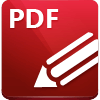 File Attachment Tool
File Attachment Tool
Click the File Attachment Tool to embed files into documents:
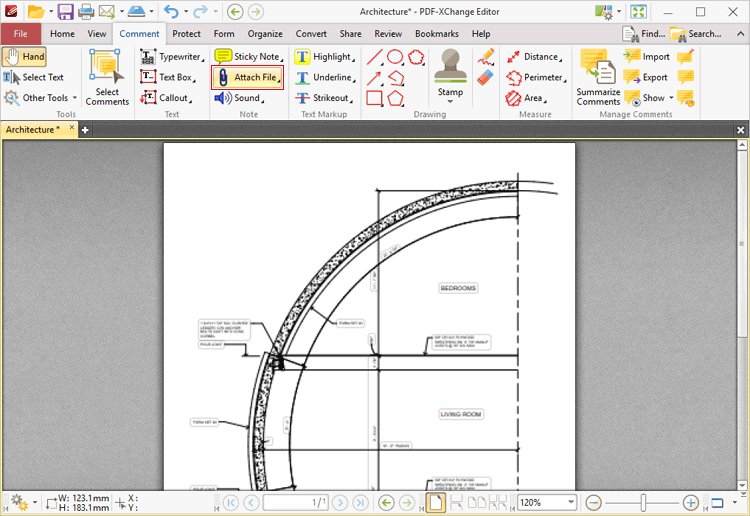
Figure 1. Comment Tab, File Attachment Tool
When the File Attachment Tool is enabled, the pointer becomes a crosshairs icon. Move the crosshairs to the desired location and click to embed a file. The Open Files dialog box will open. Select the desired file and click Open. The link to the embedded file will then appear in the document:
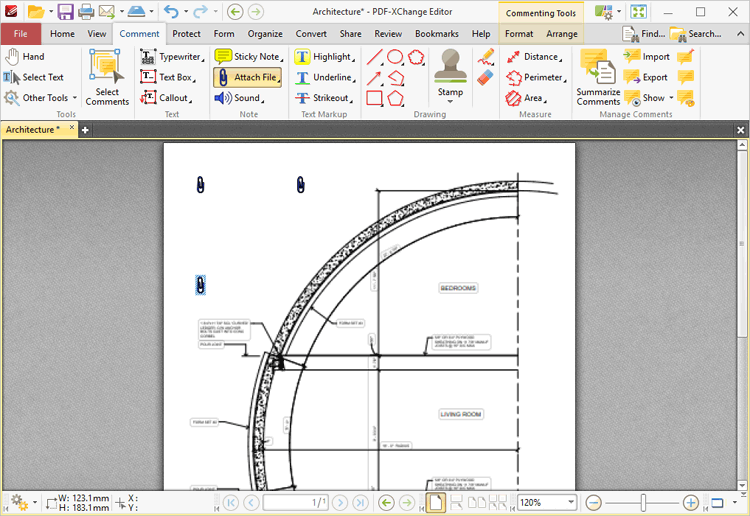
Figure 2. File Attachment Tool Examples
•Click and drag the file attachment icon, or use the arrow keys, to reposition it. Hold down Shift to move at an increased increment when using the arrow keys.
•Double-click the file attachment icon to open the attached file.
•Right-click file attachment icons for further options. See here for an explanation of those options.
•Press Ctrl+' to open the Properties pane for selected file attachment comments and view/edit properties:
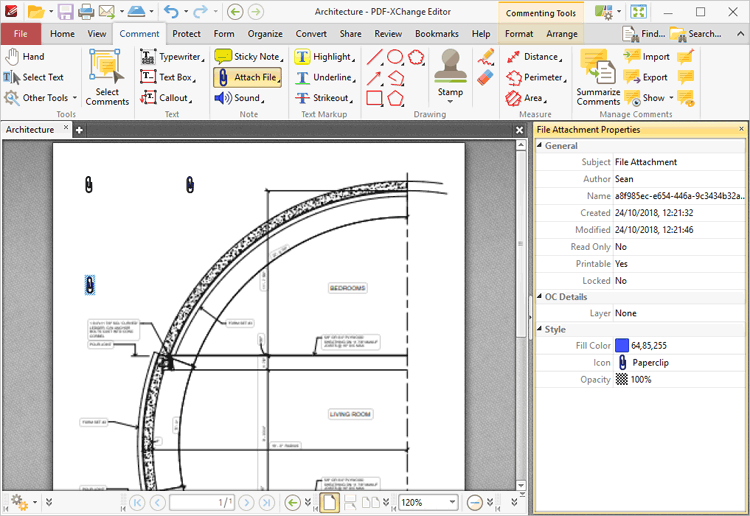
Figure 3. File Attachment Tool, File Attachment Properties Pane
•Subject is the name of the file attachment comment, as referenced in the Comments pane.
•Author is the name of the user that created the file attachment comment.
•Name is the unique name of the file attachment comment, as referenced within the application.
•Created is the date and time at which the file attachment comment was created.
•Modified is the date and time at which the file attachment comment was last modified.
•Read Only is the read only status of the file attachment comment. If this property is enabled then users cannot interact with the comment.
•Printable is the print status of the file attachment comment. If this property is enabled then the comment is printed with the document. If this property is not enabled then the comment is not printed.
•Locked is the locked status of the file attachment comment. If this property is enabled then the comment cannot be deleted and its properties (including its position and size) cannot be modified by users.
•Layer specifies the optional content layer to which the file attachment comment belongs. Further information about layers is available here.
•Fill Color determines the color of the file attachment comment.
•Icon determines the icon used for the file attachment comment.
•Opacity determines the level of transparency in the file attachment comment.
Note that when the File Attachment Tool is enabled, the Format tab is available and can be used to customize the default properties of file attachments:
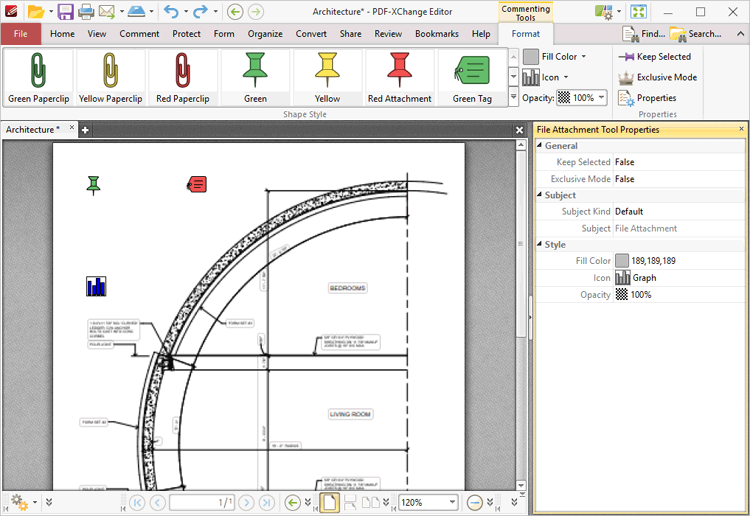
Figure 4. Format Tab, File attachment Tool
•Click options in the Shape Style group to select alternative default file attachment annotation styles.
•Click Keep Selected to keep the File Attachment Tool enabled and add multiple file attachment annotations to the document. If this option is not enabled then PDF-XChange Editor will revert to the designated default tool immediately after creating one file attachment annotation.
•Click Exclusive Mode to enable exclusive mode, which simplifies the process of using the File Attachment Tool. When Exclusive Mode is enabled, the pointer ignores all interactive elements of documents other than base content. This makes it possible to create file attachment annotations on areas that overlap with other content without the risk of accidentally selecting undesired items. When Exclusive Mode is disabled, the pointer recognizes and interacts with all underlying elements in the usual manner.
•Click Properties to open the Properties pane and view/edit File Attachment Tool properties, as detailed above.
•When file attachment comments are selected, the Style Tools dropdown menu is available in the Format tab. It contains the following options:
•Click Copy Comment Style to copy the style properties of comments.
•Click Apply Copied Comment Style to apply a copied comment style to selected comments, including the text properties.
•Click Apply Copied Comment Appearance to apply copied comment styles to selected comments.
•Click Apply Copied Text Style to apply copied text styles to selected comments.
•Click Make Current Properties Default to set the properties of the selected comment as the default properties for subsequent comments.
•Click Apply Default Properties to apply the default comment properties to selected comments.
•Click Make Current Text Format Default to set the text format of selected comments as the default format for subsequent comments.
•Click Apply Default Text Format to apply the default text format to the text of selected comments.
•When file attachment comments are selected, the Pop-up group is available in the Format tab and can be used to interact with the pop-up note of the comment:
•Click Open to open the pop-up note.
•Click Hide to hide the pop-up note.
•Click Reset Location to reset the location of the pop-up note.
•When file attachment comments are selected, the Arrange tab is also available and can be used to manipulate comments as detailed here.
Note that the Comment Styles Palette can be used to edit and save customized file attachment annotation styles for subsequent use, and the Commenting preferences can be used to view/edit preferences for all comments.